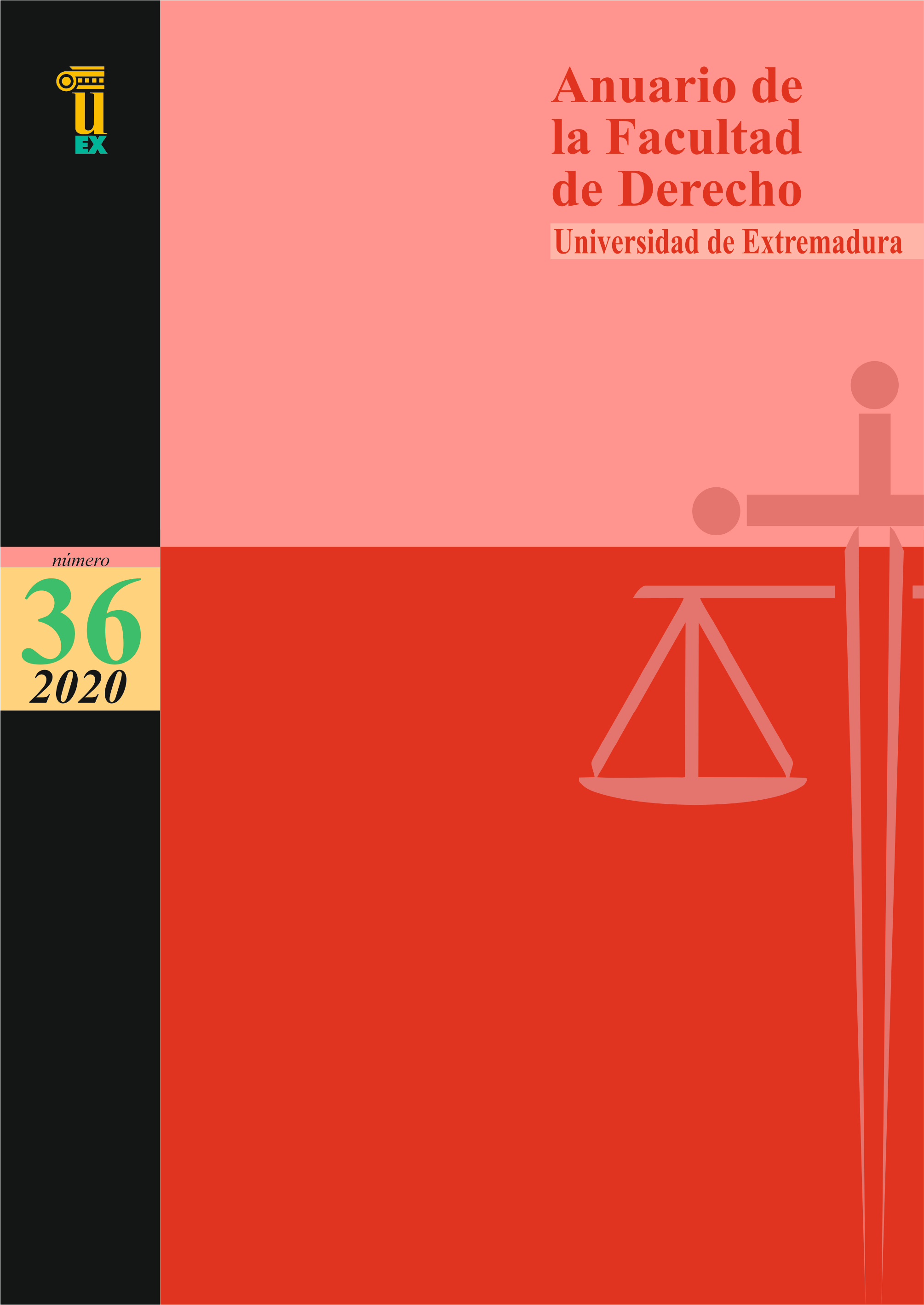Respuesta de Polonia al COVID-19 y el principio de legalidad: Iliberalismo y elecciones presidenciales
DOI:
https://doi.org/10.17398/2695-7728.36.25Palavras-chave:
coronavirus, COVID-19, poderes de emergencia, iliberalismo, Polonia, elecciones, legalidadResumo
En este artículo analizaremos la respuesta a la crisis provocada por el COVID-19 por parte de Polonia, un Estado caracterizado por haber tomado la senda del iliberalismo desde la llegada al poder del partido político Ley y Justicia (PiS). Los principales elementos del análisis serán el contexto político-constitucional del país antes y después del triunfo electoral de PiS en 2015, la regulación constitucional de los poderes de emergencia y la respuesta que realmente ha dado el Gobierno a la crisis del COVID-19. Para ello, utilizaremos como base los estudios realizados sobre el Estado de Derecho en Polonia, así como un estudio de caso: las elecciones presidenciales que estaban fijadas el 10 de mayo de 2020. Teniendo en cuenta todos estos elementos de forma conjunta, comprobaremos que se trata de la continuación de una misma estrategia, cuyo objetivo es la erosión del Estado de Derecho y del principio de separación de poderes.
Downloads
Referências
Albi, Anneli. EU Enlargement and the Constitutions of Central and Eastern Europe. Cambridge: Cambridge University Press, 2005.
Bar-Siman-Tov, Ittai. “Covid-19 meets politics: the novel coronavirus as a novel challenge for legislatures”. The Theory and Practice of Legislation 8 (2020): 11-48.
Barroso Márquez, Juan Francisco. “Estado de Derecho, iliberalismo y poderes de emergencia: oportunismo político en Hungría”. En La Constitución en tiempos de pandemia. Dirigido por Andrés Iván Dueñas Castrillo, Andrés Fernández Cañueto, Pablo Guerrero Vázquez y Gabriel Moreno González. Madrid: Dykinson, 2020.
Barroso Márquez, Juan Francisco. “Nuevas dinámicas en la Unión Europea: propuesta para la creación de fondos condicionados al cumplimiento del Estado de Derecho”. Revista General de Derecho Público Comparado 28 (2021).
Blázquez Peinado, María Dolores. “La UE ante las vulneraciones del Estado de Derecho por parte del Estado polaco: panorámica general y estado actual de la cuestión”, Revista General de Derecho Europeo 48 (2019).
Blokker, Paul, “EU Democratic Oversight and Domestic Deviation from the Rule of Law. Sociological Reflections”. En Reinforcing Rule of Law Oversight in the European Union. Editado por Carlos Closa y Dimitry Kochenov. Cambridge: Cambridge University Press, 2016.
Böckenförde, Ernst Wolfgang. Estudios sobre el Estado de Derecho y la democracia. Madrid: Trotta, 2000.
Campoy Cervera, Ignacio. En defensa del Estado de Derecho. Debilidades y fortalezas del Estado de Derecho a propósito de las críticas de Carl Schmitt. Madrid: Dykinson, 2017.
Comisiones Obreras. “Derechos Humanos y COVID-19”. Observatorio COVID-19 https://www.ccoo.es/d94b14a3b24162bae3a3359cccf691f3000001.pdf (fecha de consulta: 10/11/2020).
Complak, Krystian. “Sinopsis del actual régimen constitucional de Polonia”. Revista Vox Juris 12 (2005): 27-37.
Drinóczi, Tímea y Agnieszka Bień-Kacała. “Illiberal Constitutionalism: The Case of Hungary and Poland”. German Law Journal 20 (2019): 1140-1166.
Drinóczi, Tímea y Bień-Kacała Agnieszka. “COVID-19 in Hungary and Poland: extraordinary situation and illiberal constitutionalism”. The Theory and Practice of Legislation 8 (2020): 171-192.
Halmai, Gábor. “Illiberalism in East-Central Europe”. EUI Working Papers (LAW 2019/05), https://ssrn.com/abstract=3486420.
Jack, Brian. “Article 260(2) TFEU: An Effective Judicial Procedure for the Enforcement of Judgments?”. European Law Journal 19(3) (2013): 404-421.
James, Toby S. y Sead Alihodzic. “When Is It Democratic to Postpone an Election? Elections During Natural Disasters, COVID-19, and Emergency Situations”. Election Law Journal 19(3) (2020): 344-362.
Klopocka, Marta. “El Tribunal Constitucional de la República de Polonia: organización y funcionamiento”. Parlamento y Constitución. Anuario 10 (2006-2007): 167-178.
Konstadinides, Theodore. The Rule of Law in the European Union. Oxford: Hart Publishing, 2020.
Krygier, Martin y Adam Czarnota. The Rule of Law after Communism. Nueva York, Routledge, 2016.
López Aguilar, Juan Fernando. “De nuevo (y todavía) Polonia: Rule of Law y Art. 7 TUE en el Parlamento Europeo y en el Tribunal de Justicia”. Teoría y Realidad Constitucional 44 (2019): 137-176.
Müller, Jan-Werner, “Protecting the Rule of Law (and Democracy!) in the EU. The Idea of a Copenhagen Commission”. En Reinforcing Rule of Law Oversight in the European Union, editado por Carlos Closa y Dimitry Kochenov. Cambridge: Cambridge University Press, 2016.
Petrov, Jan. “The COVID-19 emergency in the age of executive aggrandizement: what role for legislative and judicial checks?”. The Theory and Practice of Legislation 8 (2020): 71-92.
Rey Martínez, Fernando. “¿Es el aborto un derecho en Europa? Comentario de la sentencia ‘A, B y C v. Irlanda’, del Tribunal Europeo de Derechos Humanos”. Estudios Constitucionales 9 (2) (2011): 743-752.
Sadurski, Wojciech. Poland’s Constitutional Breakdown. Oxford: Oxford University Press, 2019.
Sánchez Barrilao, Juan Francisco. “Sociedad del miedo y desafección constitucional”. Revista de Derecho Político 108 (2020): 97-125.
Scheppele, Kim Lane. “The Rule of Law and the Frankenstate: Why Governance Checklists Do Not Work”. Governance: An International Journal of Policy, Administration, and Institutions 26(4) (2013): 559-562.
Scheppele, Kim Lane. “Unconstitutional Constitutional Power”. https://www.sas.upenn.edu/andrea-mitchell-center/sites/www.sas.upenn.edu.dcc/files/uploads/Scheppele_unconstitutional%20constituent%20power.pdf (2013) (fecha de consulta: 07/10/2020).
Scheppele, Kim Lane, “Constitutional Coups in EU Law”. En Constitutionalism and the Rule of Law. Bringing Idealism and Realism, editado por Maurice Adams, Anne Meuwese y Ernst Hirsch Ballin. Cambridge: Cambridge University Press, 2018.
Serowaniec, Maciej y Zbigniew Witkowski. “Can legislative standards be subject to ‘quarantine’? The functioning of the Tablet Sejm in Poland in the COVID-19 era”. The Theory and Practice of Legislation 8 (2020): 155-170.
Siera Mucientes, Sara. “Constitución de Polonia”. Revista de las Cortes Generales 67 (2006): 397-486.
Uitz, Renata. “Guest Editorial: The Perils of Defending the Rule of Law Through Dialogue”. European Constitutional Law Review 15 (1) (2019): 1-16.
Valvidares Suárez, María. “El constitucionalismo polaco: pasado y presente”. Revista Española de Derecho Constitucional 65 (2002): 183-195.
Vecchio, Fausto. “Los ordenamientos constitucionales de Hungría, Polonia y Eslovenia”. Revista de Derecho Constitucional Europeo 14 (2010): 175-223.
Zakaria, Fareed. “The Rise of Illiberal Democracy”. Foreign Affairs 76 (2) (1997): 22-43.








.png)


